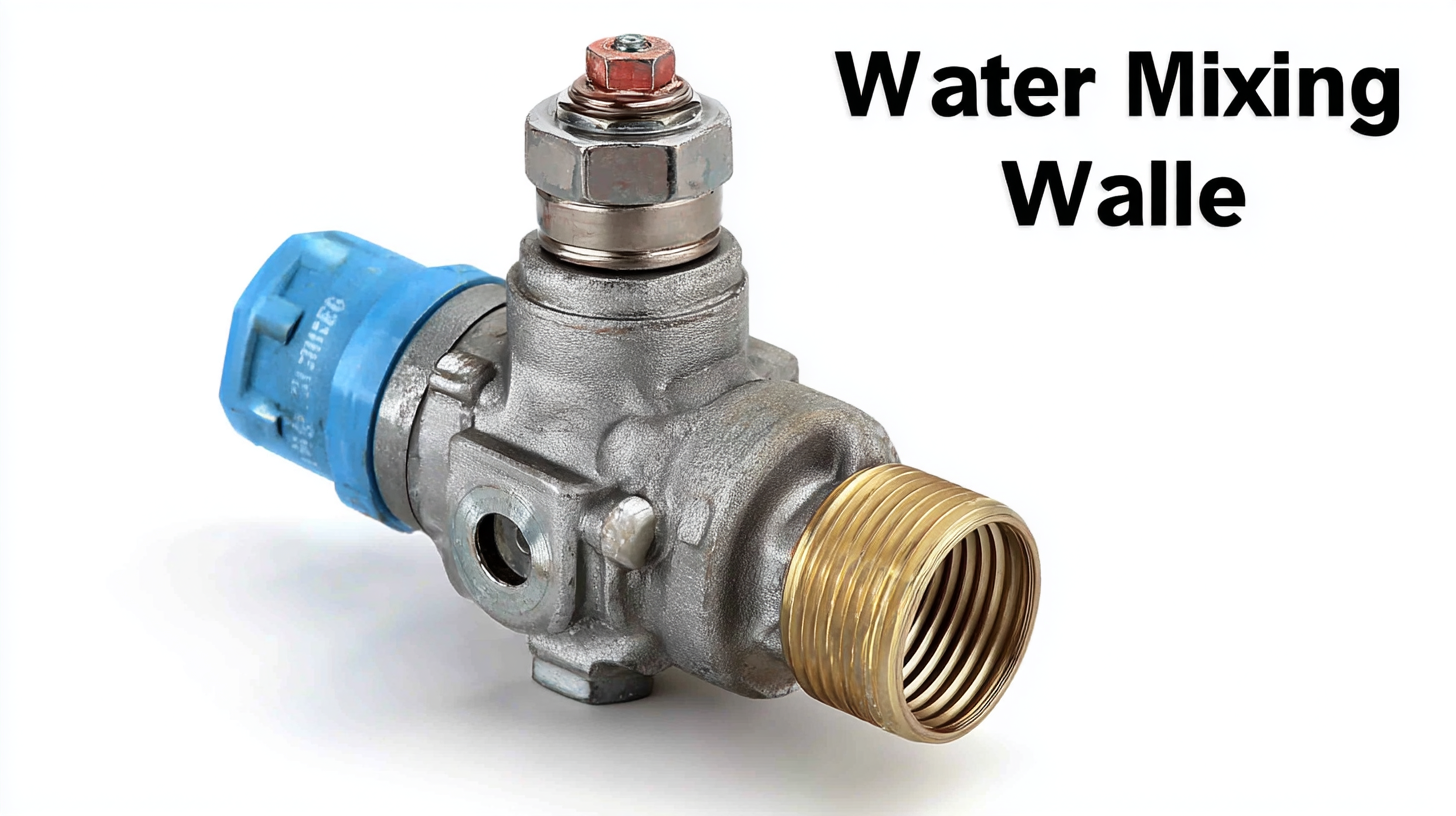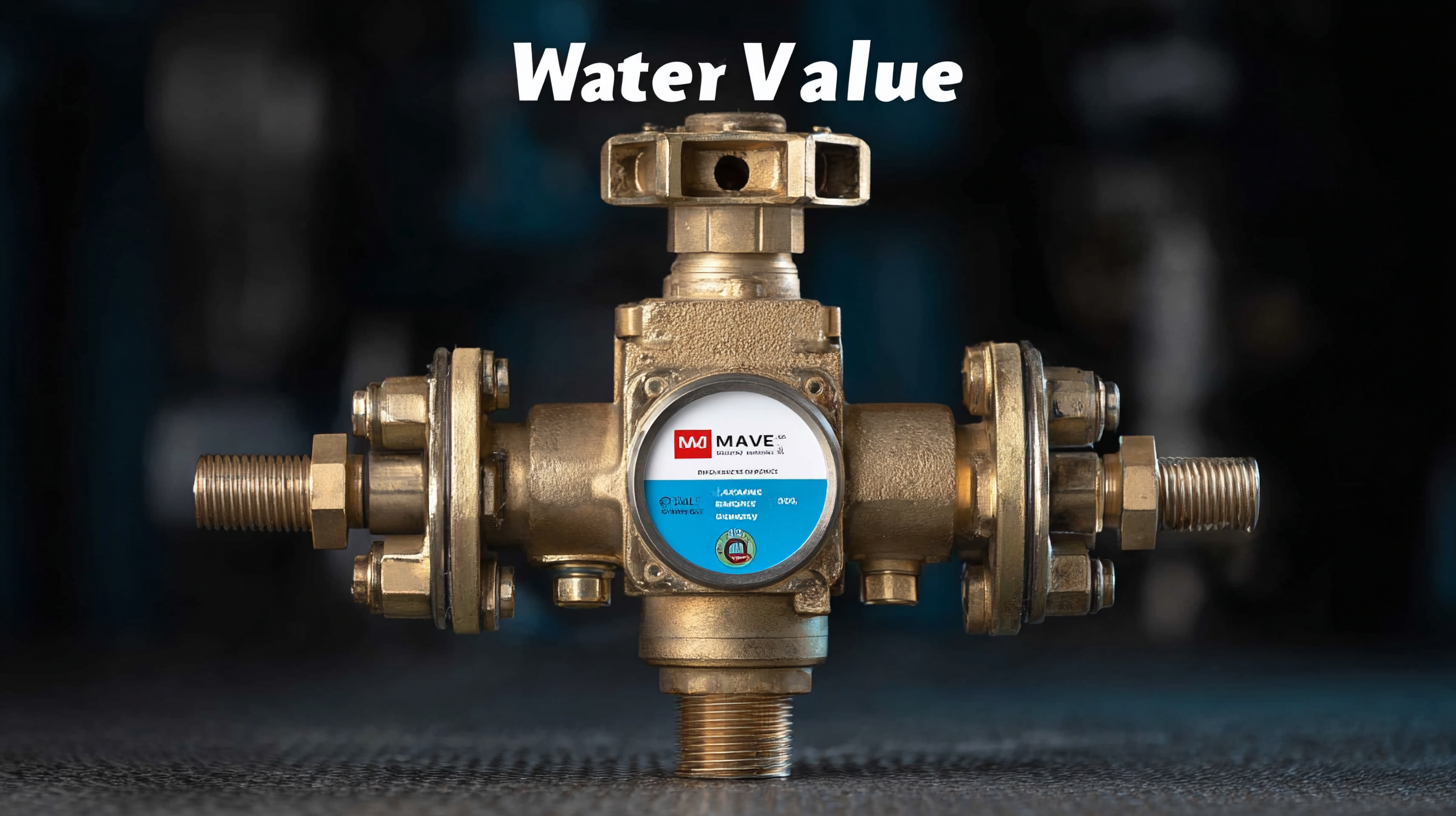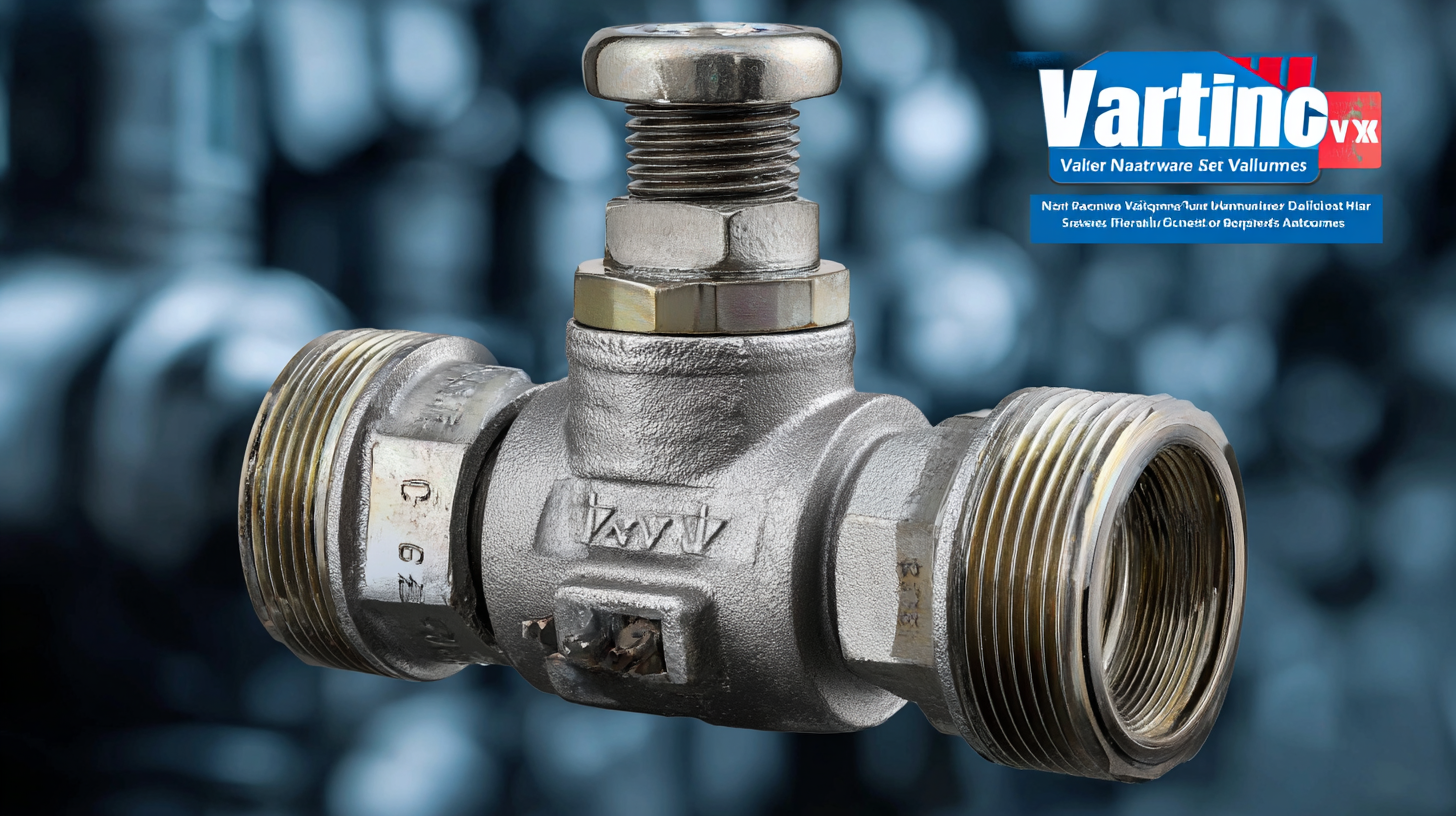In today's fast-paced world, ensuring the optimal performance of your hot water mixing valve is not just a matter of initial selection, but also a commitment to ongoing maintenance and exceptional after-sales support. As these essential components play a critical role in maintaining safe and comfortable water temperatures in residential and commercial settings, choosing a high-quality manufacturer is of paramount importance. This blog will explore key considerations for selecting the best hot water mixing valve, emphasizing the significance of reliable support and maintenance practices that can maximize the overall value of your investment. By understanding the intersection of quality manufacturing and dedicated service, you can make informed decisions that ensure lasting efficiency and safety in your hot water systems.

As we move toward 2025, the landscape of hot water mixing valve technology is evolving rapidly. One of the most notable trends is the integration of smart technology, allowing for real-time monitoring and control. These advanced mixing valves come equipped with IoT capabilities, enabling users to adjust temperature settings remotely via their smartphones. This not only enhances convenience but also improves energy efficiency by optimizing water usage patterns based on user habits.
Another emerging trend is the push towards sustainability and eco-friendliness in the materials used for manufacturing hot water mixing valves. Manufacturers are increasingly adopting recyclable materials and innovative designs that minimize waste during production. Moreover, the implementation of advanced insulation materials reduces heat loss, which contributes to energy-saving benefits over the lifespan of the valve. This commitment to sustainability not only addresses environmental concerns but also appeals to a growing consumer base that prioritizes eco-conscious products.

When selecting a high-quality hot water mixing valve, several key features should be prioritized to ensure both performance and reliability. First and foremost, look for valves that are designed with precise temperature control mechanisms. This feature not only safeguards against potential scalding but also allows for optimal comfort by maintaining consistent water temperatures. Valves with built-in thermostatic controls are particularly effective, as they automatically adjust to changes in water supply, ensuring a reliable flow at the desired temperature.
Another crucial aspect is the durability of the materials used in the valve's construction. High-quality brass or stainless steel components not only resist corrosion but also enhance the overall lifespan of the valve. Furthermore, consider valves that offer easy maintenance options, as regular upkeep is essential for sustained performance. A mixing valve with removable components and clear access points can significantly simplify maintenance tasks and reduce downtime, maximizing efficiency and value over time.
When considering the purchase of a hot water mixing valve, it's essential to conduct a comparative analysis of the top options available on the market. The ongoing growth of the thermal mixing valves market, projected to reach USD 1.70 billion by 2024 with a CAGR of 4.2%, highlights the increasing interest in efficient water heating solutions. Key models should be evaluated based on their performance, ease of installation, durability, and after-sales support.
Tips for Selecting the Best Mixing Valve:
Firstly, consider the specific requirements of your home’s heating system. Assess factors such as flow rate and temperature control, which can greatly influence efficiency. Secondly, evaluate customer reviews and case studies that showcase the real-world performance of these valves. Understanding user experiences can help in identifying both the strengths and weaknesses of various models.
Additionally, ensure that the manufacturer provides robust after-sales support. Exceptional maintenance and support services can significantly enhance the longevity and efficiency of the hot water mixing valve you select. By prioritizing both the technical features and customer service aspects, you’ll maximize the value of your investment and achieve optimal water heating performance in your home.
After-sales support plays a crucial role in maximizing the performance of hot water mixing valves. When customers invest in a high-quality valve, they not only seek optimal functionality but also require ongoing assistance to ensure that their systems operate efficiently over time. This support can include routine maintenance, prompt technical assistance, and troubleshooting services, all of which contribute to the valve’s longevity and reliability. By providing knowledgeable guidance and resources, manufacturers can help users understand how to properly operate and maintain their valves, leading to enhanced performance and reduced operational costs.
Moreover, exceptional after-sales support reinforces customer confidence and satisfaction. When users know they can rely on expert help, they are more likely to fully utilize the features of their hot water mixing valves. Regular maintenance services can anticipate potential issues before they escalate, minimizing downtime and costly repairs.
Businesses that prioritize after-sales support not only foster loyalty but also position themselves as leaders in the industry, ultimately driving demand for their high-performance products. By recognizing the importance of this aspect, both manufacturers and customers can achieve greater value from their hot water mixing valves.
Maintaining the longevity of your hot water mixing valve is crucial for ensuring efficient performance and preventing costly repairs. One of the best practices for maintenance is to regularly check for any signs of wear or leaks. This includes visually inspecting the valve for corrosion or buildup that can affect its operation. Keeping the area around the valve clean and free from debris can also help to avoid potential issues.
Another important tip is to monitor the temperature settings on your water heater. Too high a setting can lead to excessive pressure within the mixing valve, significantly shortening its lifespan. Adjusting these settings to optimal levels not only protects the valve but also enhances water efficiency, which aligns with best management practices promoting conservation in facilities.
Additionally, if you notice any irregularities in your hot water supply, such as lukewarm water, it might be time to examine the dip tube in your water heater. A defective dip tube can hinder the mixing process, affecting both comfort and efficiency. Regular inspections and maintenance can help identify these issues early, allowing for timely repairs and ensuring the hot water mixing valve continues to perform at its best.

